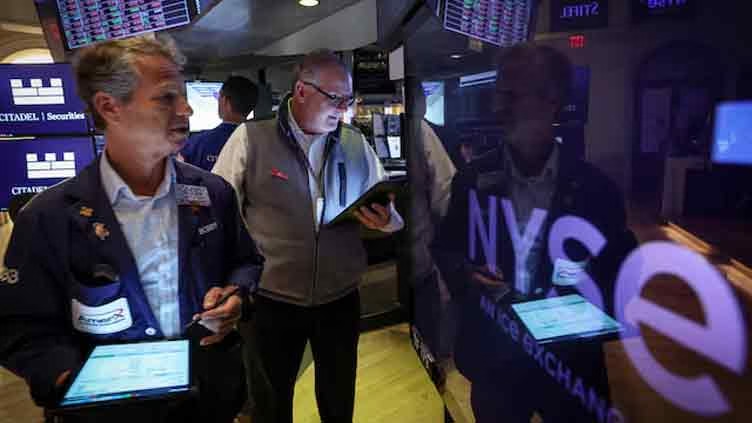U.S. stocks declined on Friday, closing out the week with losses across all major indexes. The drop followed former President Donald Trump’s call for 50 percent tariffs on European goods, signaling the potential reopening of a new front in global trade tensions. The announcement triggered fresh uncertainty in the markets, leading to widespread sell-offs, particularly in technology and consumer discretionary sectors.
Major Indexes Register Weekly Losses
Despite recovering from steeper intraday losses, all three primary U.S. stock indexes ended the day in the red. The Dow Jones Industrial Average fell by 256.02 points, a decline of 0.61 percent, closing at 41,603.07. The S&P 500 dropped 39.19 points or 0.67 percent to end at 5,802.82. The Nasdaq Composite also slipped by 188.53 points or 1.00 percent, closing at 18,737.21.
For the week, the Dow declined by 2.47 percent, the S&P 500 fell by 2.61 percent, and the Nasdaq Composite lost 2.48 percent.
Technology Stocks Under Pressure
Tech giants led the decline on Friday. Apple shares fell by 3 percent, hitting a two-week low, following Trump’s warning that the company could face a 25 percent tariff on iPhones sold in the U.S. but not manufactured domestically. Other notable tech names, including Amazon, Nvidia, and Meta Platforms, also closed more than 1 percent lower. Tesla shares edged down by 0.5 percent.
The CBOE Volatility Index, commonly referred to as Wall Street’s “fear gauge,” reached its highest level in over two weeks, rising by 10 percent. Semiconductor stocks also took a hit, with the semiconductor index dropping 1.5 percent.
Trump’s Comments Stir Market Anxiety
James St. Aubin, Chief Investment Officer at Ocean Park Asset Management, described the market reaction as a return to past tensions. He noted that investors were hopeful the era of tariff threats was over, but Trump’s renewed rhetoric reignited concerns. St. Aubin remarked that the former president appeared to be increasing pressure on both the European Union and American companies like Apple.
Economic Uncertainty Hits Corporate Outlook
Several companies also suffered due to growing economic uncertainty. Deckers Outdoor Corporation, the maker of UGG boots, saw its stock plummet nearly 20 percent after forecasting lower-than-expected first-quarter sales. The company also refrained from issuing annual financial guidance, citing macroeconomic risks tied to the evolving tariff situation. Nike shares dropped by 2.1 percent.
Treasury Yields Ease
In bond markets, U.S. Treasury yields eased slightly after reaching multi-month highs earlier in the week. The yield on the benchmark 10-year Treasury note fell 4.4 basis points to 4.509 percent.
Trade Policy Concerns Remain
U.S. Treasury Secretary Scott Bessent echoed Trump’s dissatisfaction with the European Union’s current trade proposals. He expressed hope that the threat of additional tariffs would encourage the EU to return to negotiations with a more favorable offer.



